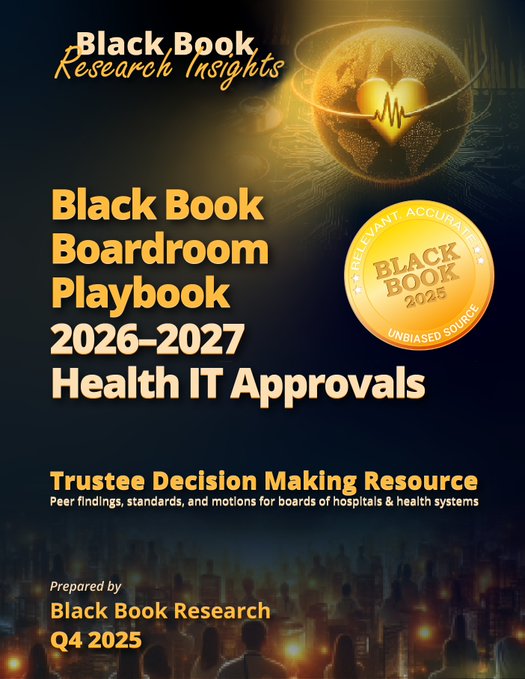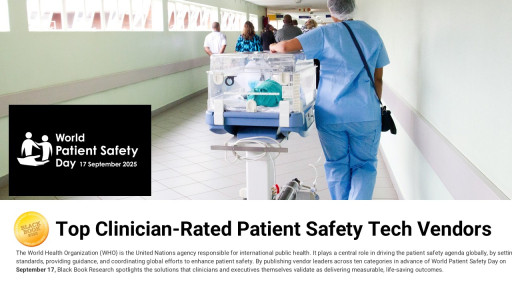Latest News Feed

Duplicate and fragmented shared patient records are progressively putting patient safety at risk and afflict provider bottom lines.

Healthcare IT research firm's sweeping worldwide study reveals rapidly advancing opportunities for US-based and local tech vendors
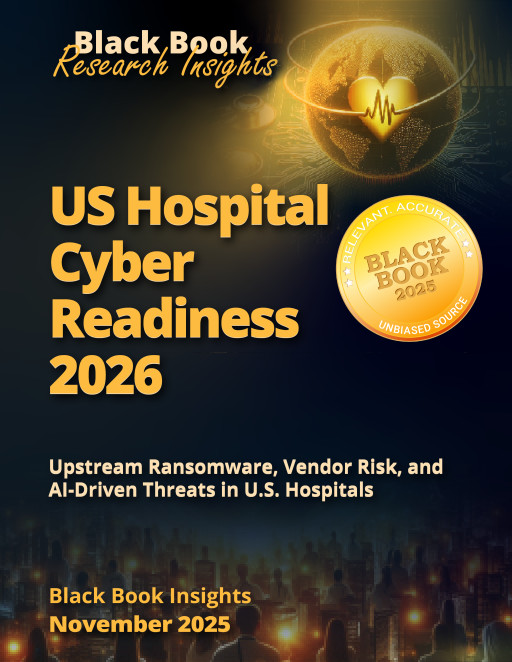
Hospitals struggle to cut off compromised vendors and AI platforms, as the new 2026 US Hospital Cyber Readiness report from Black Book Research delivers actionable intelligence on kill-switch deficits, slow revocation timelines, and contract/insurance misalignment with third-party and AI risk.
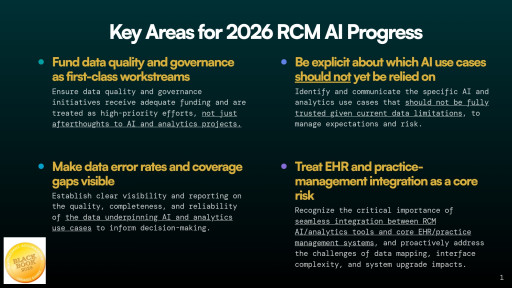
149 revenue cycle executives report data quality, documentation, and EHR integration as the real constraints on AI-not algorithms or tools in Black Book Flash Poll
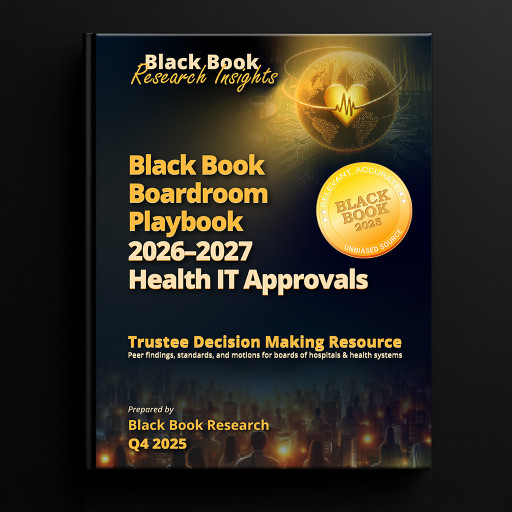
Black Book Research provides trustees with a practical, 129-page, vendor-agnostic governance manual, developed independently and not commissioned, sponsored, or affiliated with any health IT vendor or vendor-supported professional association, to clarify HIT priorities, educate new and existing board members, and strengthen independent oversight of 2026-2027 digital and IT budget approvals.
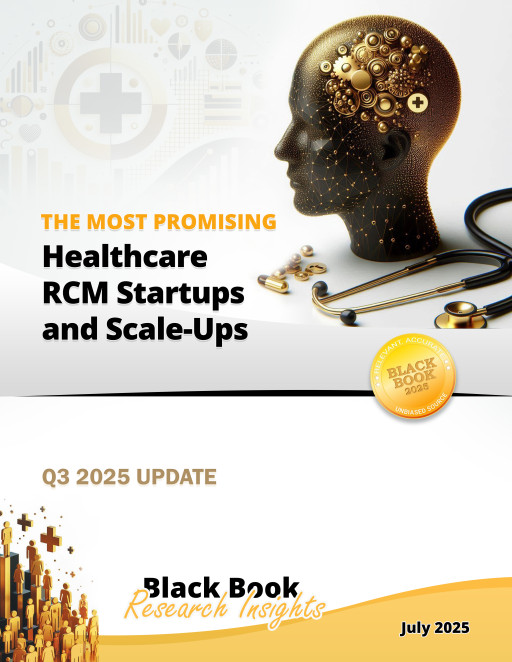
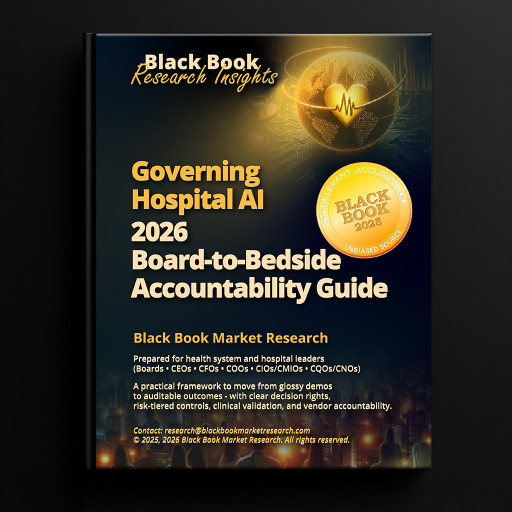
Black Book Research survey shows most hospitals struggle to validate AI vendor claims and scale pilots, but those with formal AI governance are over 2× more likely to achieve 12-month ROI.

Black Book Survey of 182 Hospitals Finds Only 22% Confident in Producing a 30-Day AI Audit Trail; Median 4.2% of 2026 IT + Quality/Safety Budgets Devoted to AI Oversight

First in a Board-Level Series Guiding Hospitals Toward Safe, Equitable, and ROI-Driven AI Deployment

Black Book Research releases a Europe-wide RIS Purchasing Playbook with contractable SLOs, best-fit vendor guidance, and an RFP scoring toolkit.

Operators highlight practical levers to speed AI, interoperability, and cyber resilience

Boards and finance committees are putting hold stamps on non‑essential IT as buyers shift to fast‑ROI RCM and cybersecurity
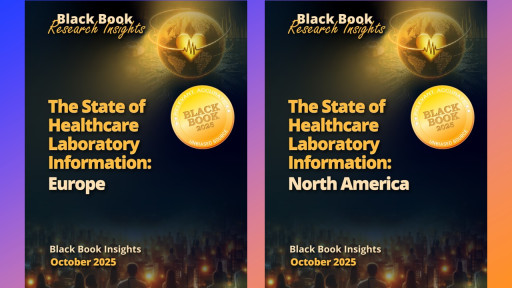
From compliance-driven modernization to AI-first architectures—new twin reports map the next decade of LIS/LIMS transformation on both sides of the Atlantic.
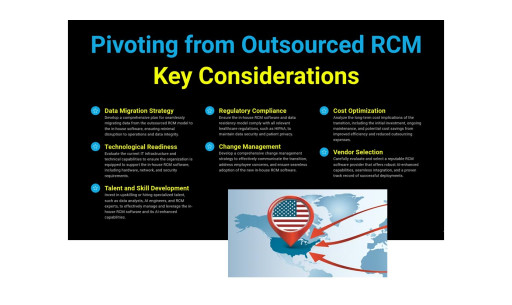
Black Book Research-authors of the mid-2000s bestseller The Black Book of Outsourcing (Wiley Publishers) and the forthcoming The Black Book of Reshoring -reports indications of a decisive market reset as American hospitals move from managed RCM services to AI-powered, on-shore revenue cycle platforms. With one-third projecting the foregoing of at least one RCM outsourcing renewal, 62% prioritizing coding and CDI automation, and 78% demanding U.S. data residency, health systems are redefinin
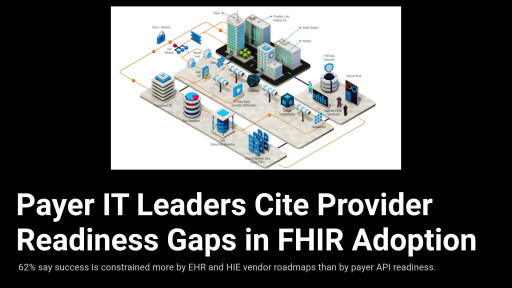
New Black Book poll of 118 health plan IT professionals finds data sharing success now depends on provider engagement and EHR vendor alignment.
Based on a Black Book Research flash survey of 97 HIM leaders conducted at AHIMA 2025 last week.
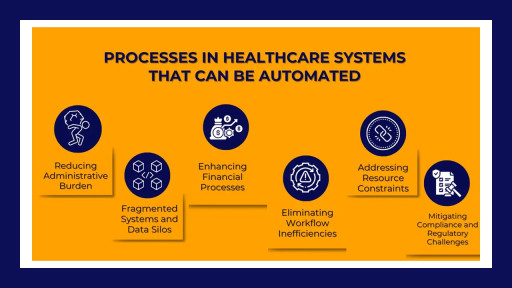
Investor sentiment is cooling sharply across once-hot digital health sectors.

Black Book survey reveals just 1 in 4 hospitals can fully exchange patient data across national boundaries in Q4 2025

Compiled by Black Book Research from VC PE and banking investors, the briefing ranks which AI-driven categories are converting pilots to scale and where capital rotation is expected to accelerate, delivering measurable governance, speed, and margin expansion.
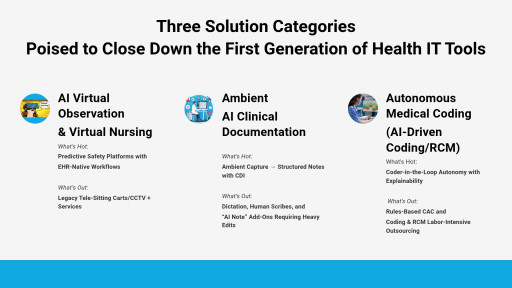
The first of two Black Book investor briefs identifies the health-tech categories demonstrating pilot-to-scale momentum and early indicators of exit-level multiples.

EHRCON25, openEHR's flagship global conference on electronic health record innovation, will gather health IT leaders from across South America, Africa, Asia, Oceania, and Europe - the largest international event dedicated to advancing open, standards-based health data interoperability.

Independent Black Book user experience rankings spotlight vendors leading the modernization of health information management from AI-powered coding to interoperable data systems.
Black Book’s 2026 international survey of 210 health executives highlights a regional push to replace legacy interoperability engines with open, future-proof data architectures.

New Black Book Research survey reveals Brazil, Mexico, Chile, and Colombia leading rapid adoption of openEHR frameworks as Doug Brown presents regional growth findings at EHR Con 2025 in Barcelona.

Highlighting the Solutions Transforming Data Accuracy, Automation, and AI-Driven Revenue Integrity at the Minneapolis Convention Center, October 12–14, 2025

Black Book Survey results reveal the twenty-five firms shaping the next generation of accountable care infrastructure released in orchestration with the opening events of the National Association of Accountable Care Organizations (NAACOS) Fall 2025 Meeting in Washington, D.C.


New research from Black Book benchmarks U.S. healthcare's ROI technology landscape - complimentary report now available to providers and payers.

Far beyond Telehealth, this Black Book end-of-week flash survey of 152 healthcare executives reveals hospitals, physician groups, and diagnostics centers are accelerating claims, standing up RCM war rooms, stockpiling supplies, and freezing IT changes to preserve cash and continuity.
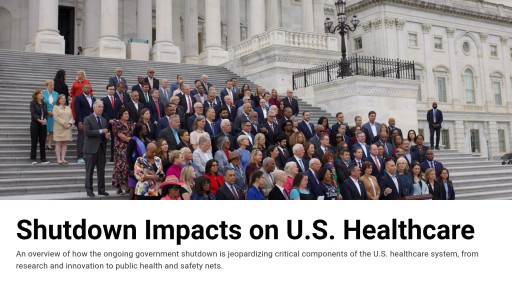
Black Book Launches Rapid-Response Polls Tracking Real-Time Impacts on Providers, Payers and Patients
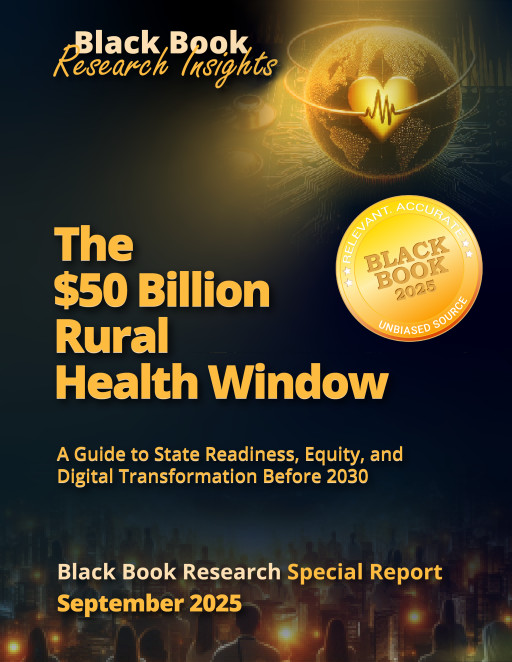
New 44-page Special Report details state readiness, equity strategies, and vendor alignment ahead of the November 5 CMS deadline
755 practice managers reveal a good news/bad tech news reality as MGMA 2025 convenes in Orlando
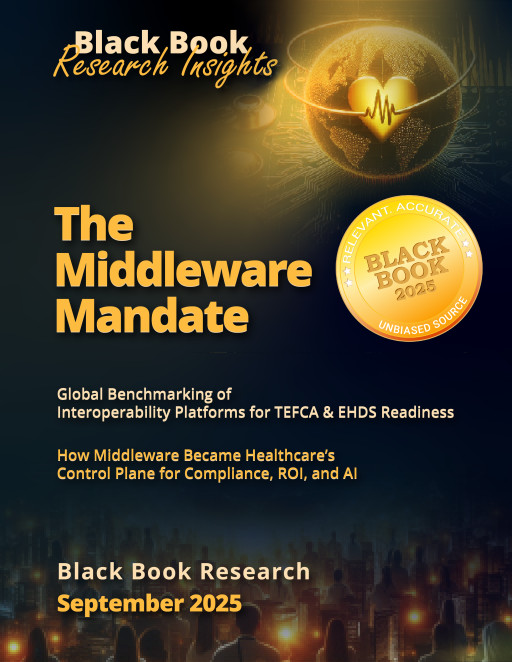
Interoperability Performance and Vendor Readiness Across U.S., Europe, Canada, APAC, and the Middle East
Ahead of MEDITECH LIVE 2025 this week, Black Book releases survey findings from 128 hospital clients, conducted prior to the event.
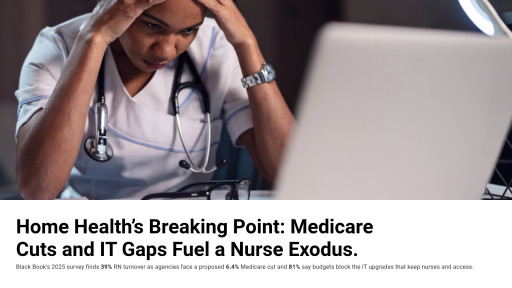
Black Book survey: IT modernization is the lever to keep home health nurses and protect access as Medicare rate changes loom

Black Book Insights' global survey of 404 executives across 40 countries forecasts USD 65 billion in annual non-U.S. payer IT spend by 2027 - rivaling U.S. health insurer technology budgets.
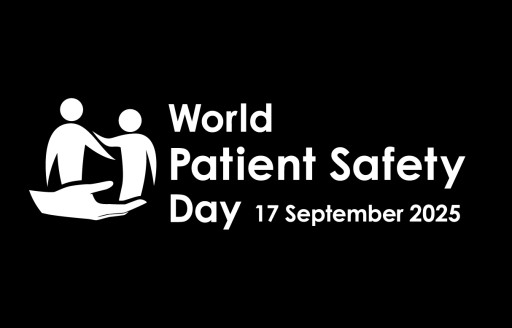
Black Book survey finds hospitals worldwide struggling with legacy systems, weak safeguards and systemic lapses in biomedical protection


